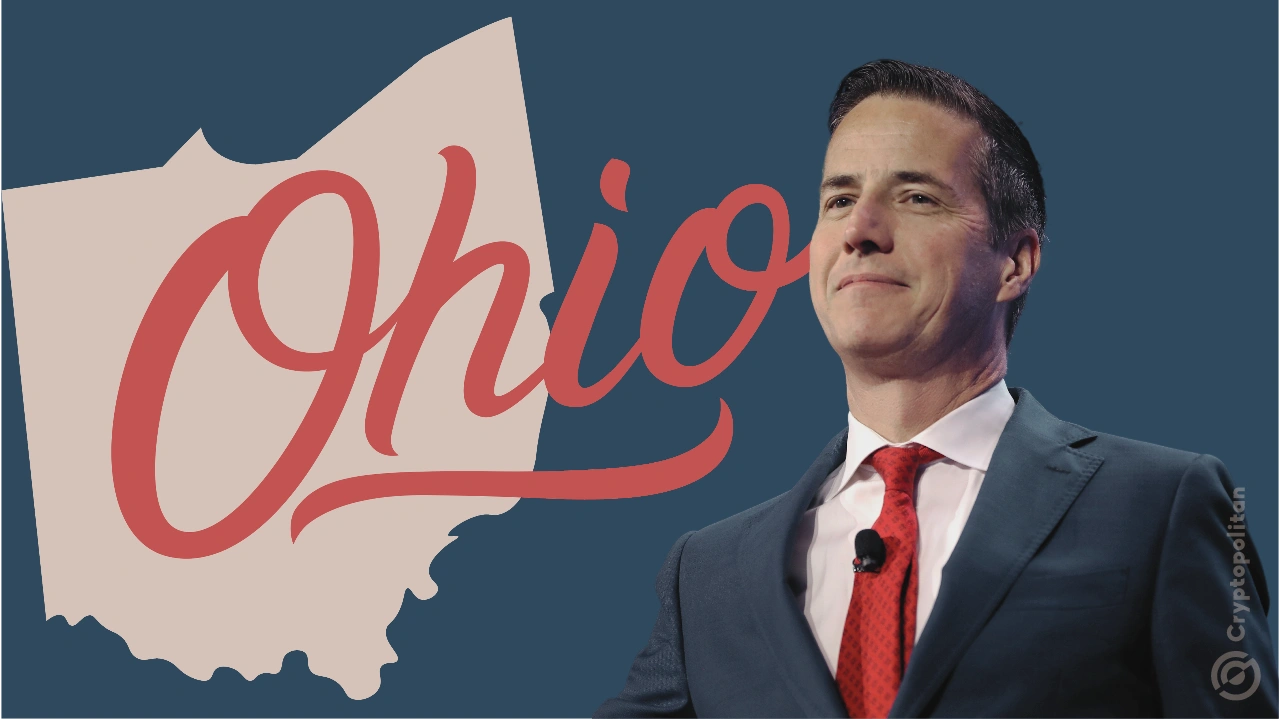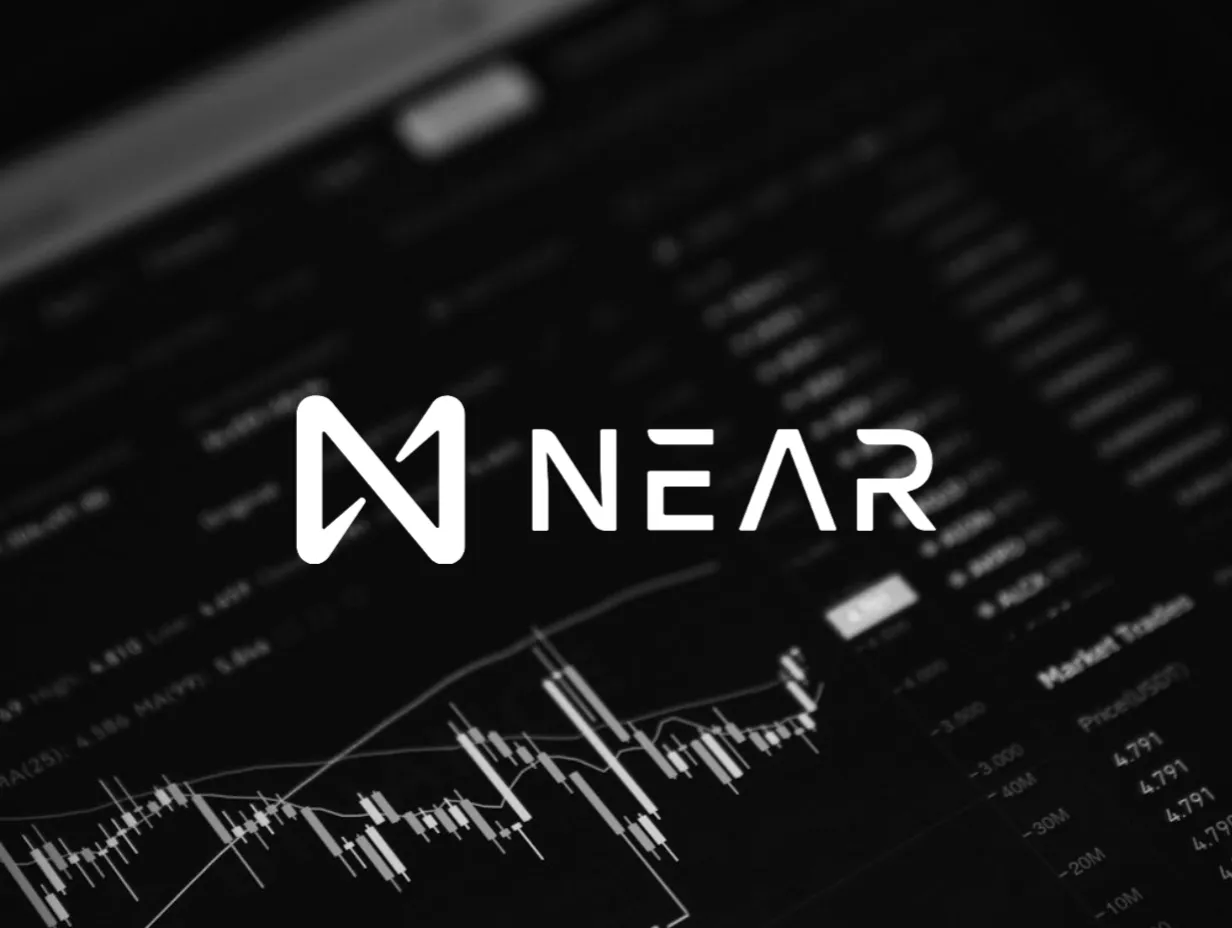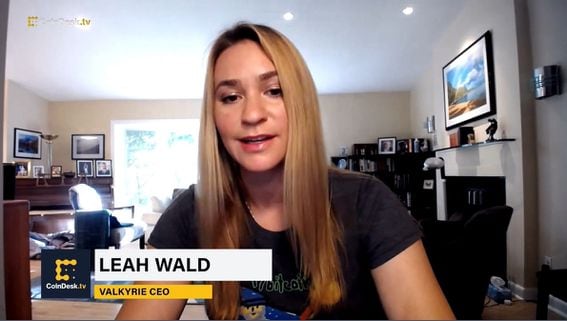Republican Bernie Moreno pulled off a major upset in Ohio, unseating Democrat Sherrod Brown in a Senate race flooded with millions in crypto money.
Crypto PACs were all in on Moreno, with pro-crypto powerhouse Fairshake leading the way. They shelled out around $40 million in the fight to oust Brown, who’s had a tight alliance with SEC Chair Gary Gensler.
Gensler’s tenure has been a thorn in the side of the crypto industry, ramping up enforcement and keeping firms like Coinbase and Ripple in his regulatory crosshairs. Big crypto backers, including Coinbase and Ripple, and key figures like Andreessen Horowitz, backed Fairshake to get Moreno into office. And now, the payoff is here.
Moreno’s bid was fueled by crypto dollars
The crypto industry put the weight of over $180 million into elections across the country, supporting both Republican and Democratic candidates.
Industry donors backed candidates they believe could push for clearer rules and softer regulations. With this victory, the crypto sector may have found a test case for its influence in American politics.
Moreno himself has been a staple in crypto circles. Born in Bogota, Colombia, he’s a big fan of the digital asset world and isn’t shy about it. He co-founded ChampTitles, a blockchain firm aimed at modernizing car title management by ditching paper titles.
Though he recently sold his stake, Moreno’s crypto credentials are set. He’s locked horns with Senator Elizabeth Warren, who remains one of crypto’s biggest skeptics. While Warren held onto her seat in Massachusetts, Moreno’s win sends a clear message: crypto’s influence is growing, and it has no intention of playing small.
Back in December, Brown brushed off industry pushback, telling Politico, “Bring ’em on.” This bravado didn’t hold up on election night.
As of this morning, the Fairshake PAC and crypto backers are celebrating, with Coinbase CEO Brian Armstrong dubbing this Congress the “most pro-crypto Congress ever.”
A sign of things to come?
According to the Defend American Jobs PAC, Brown was “a top opponent of cryptocurrency,” and Moreno’s win is proof that Ohio voters want a leader who’s ready to innovate and bring the US into the future.
Across the country, crypto has been picking up victories. According to the Stand With Crypto Alliance, launched by Coinbase last year, over 240 crypto-friendly candidates were elected to the House and 14 to the Senate.
Crypto execs like Tyler Winklevoss, who was one of the top individual donors this cycle, called Brown a “crypto public enemy” and a “Gary Gensler crony.”
It’s no secret the crypto industry has been at loggerheads with the SEC. Gensler has cracked down on crypto firms, pushing them into a maze of legal battles. Coinbase and Ripple, both major Fairshake backers, are neck-deep in lawsuits with the SEC, each fighting claims that they sell unregistered securities.
This clash has left the industry eager for a Congress that will bring clarity and loosen Gensler’s grip. For the crypto crowd, the biggest question is: Can Moreno and others like him change the game in Washington?
If so, the industry is banking on a power shift to the Commodities Future Trading Commission (CFTC), which has taken a friendlier stance on digital assets. This would take some pressure off crypto firms struggling with SEC regulations.
“Americans disproportionately care about crypto and want clear rules of the road for digital assets,” said Brian Armstrong.
Bitcoin breaks all-time high
As news of Republican victories spread, Bitcoin surged to an all-time high, briefly touching $75,371.67 before retracing. Traders around the globe took notice, with other tokens surging and crypto-linked stocks like Coinbase and MicroStrategy climbing in after-hours trading.
Some big names were celebrating as the results rolled in. Former President Donald Trump held court at Mar-a-Lago with high-profile allies like Elon Musk, Robert F. Kennedy Jr., and Cantor Fitzgerald CEO Howard Lutnick. All three have ties to crypto, and they’ve used their influence to champion digital assets.
Earlier this year, Trump fully warmed up to the industry, attracting significant financial backing from many of its elites. His campaign and related PACs have raked in large contributions from the crypto sector, with promises of more favorable regulations.
Trump made so many pledges, from freezing federal Bitcoin holdings to creating a “Bitcoin and crypto presidential advisory council.” At the biggest Bitcoin conference of the year in Nashville, Trump promised not to sell any US-held bitcoin if he retakes the Oval, tapping into a core belief among crypto loyalists: “Never sell your bitcoin.”
A new SEC?
If elected, Trump has pledged to fire Gary Gensler. He’s repeatedly criticized the Biden administration’s “hostility” toward crypto, which he claims only benefits adversaries like China and Russia. In public appearances, he’s painted a future where crypto flourishes on US soil without regulatory crackdowns. “The rules will be written by people who love your industry, not hate your industry,” he told supporters.
Though he lacks the power to directly fire Gensler, who remains a commissioner regardless of the administration, Trump’s comments have struck a chord with an industry weary of regulatory friction. Gensler, who’s pursued over 100 actions against crypto firms, has been a divisive figure, asserting that much of the industry falls under his jurisdiction.
In a closed-door meeting with bitcoin mining executives at Mar-a-Lago, Trump also pledged to support US crypto mining. Trump’s enthusiasm for mining also resonated with the community.
At a meeting in Palm Beach, top US miners, including Riot Platforms and Marathon Digital Holdings, came together to discuss the future of mining. Trump sees a future where the US dominates crypto mining, even calling for “more electricity” to power it. “If crypto is going to define the future, I want it to be mined, minted, and made in the USA,” he said.
He’s also set his sights on the Federal Reserve. In August, Trump vowed to lower interest rates if re-elected, a move that’s historically favored crypto. Lower rates make borrowing cheaper, which tends to lift asset prices, including digital currencies.
While the Fed operates independently from the White House, Trump’s stance has excited crypto investors who are wary of rate hikes that strain speculative assets. Chair Jerome Powell cut rates in September, and if Trump returns to office, the industry expects more favorable policies.
Lower rates mean easier access to capital, giving crypto projects room to grow and innovate. The alignment between pro-crypto candidates, Trump’s pledges, and a potential rate-cut environment signals a new era for crypto in the US.





